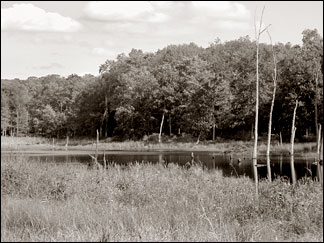Wetlands as eco-systems with higher bio-diversity
Conservation of Wetlands :
By Indeewara Thilakarathne
[email protected]
 The eco-systems that the nature endowed in a country are very
important for its beauty and for the bio-diversity. The eco-systems that the nature endowed in a country are very
important for its beauty and for the bio-diversity.
Sri Lanka remains on top among the countries with higher degree of
bio-diversity owing to its different eco-systems.
In this regard, entire country can be considered as a wetland because
Sri Lanka has large number of rivers, waterways and is a country
surrounded by sea.
Earlier wetlands were considered as dumping grounds for garbage.
However after studies, wetlands have been identified as eco-systems
with higher degree of bio-diversity. International Community has
recognized the importance of protecting wetlands as they functions as
lunge of an eco-system.
In Sri Lanka wetlands are important in storing water and also
preventing floods while protecting bio-diversity of the country.
Sri Lanka has become a paradise for migratory birds because of the
wetlands. As the migratory birds can not fly beyond south owing to the
geographical position of the country, the bird sanctuaries such as
Kumana and Bundala are very important wetlands.In recognizing importance
of wetlands, Ministry of Environment launched a Wetland Dictionary. As
up to six meter from the territorial water is considered as wetlands,
the cooperation of the public is important in protecting tanks like
Minneriya, mangroves and wetlands like Aththidiya and Muturajawela.
Sri Lanka has ratified The Ramsar Convention Wetlands (RAMSAR) which
is being implemented by Department of Forestry and Wildlife Conservation
stated Minister of Environment Patali Champika Ranawaka in explaining
the important role that wetlands play in the country as eco-systems.
Minister has further pointed out that indiscriminate reclamation of
wetlands, constructing buildings on wetland and using them as dumping
ground for garbage, has become an issue.
Minister emphasized the fact that Ministry is attempting to prevent
environment pollution and conservation of wetlands through raising
awareness and making people sensitive to environment rather than
punishing the wrong-doers.
NATIONAL POLICY ON WETLANDS
The Need for a National Policy on Wetlands
2.1. Wetlands are threatened by human activities including
reclamation, waste disposal, industrial and domestic effluent discharge,
harvesting of vegetation for firewood and other uses and invasive exotic
species. The degradation of wetland habitats carries a high economic,
social and ecological cost.
2.2. Although a number of legislative and policy instruments impact
on wetland management, a separate policy framework is desirable in view
of the specific threats these ecosystems face, and the opportunities
they offer for sustainable management.
3. Principles
3.1. Principles of sustainable use; acknowledgement of
interdependence; “polluter pays”; recognition and use of traditional
knowledge will guide this policy.
3.2. While taking socio-economic necessities into consideration, the
application of the precautionary principle will help resolve issues
relating to the management and wise use of wetlands.
3.3. Wetland management, including both planning and implementation,
will involve participation by all stakeholders and especially local
communities.
3.4. The need to conserve the downstream wetlands is recognised when
designing and implementing upstream development projects.
3.5. Awareness of values of wetlands, and benefits that can be
accrued by their sustainable management is ensured among all
stakeholders including the general public.
4. Objectives
The objectives of this policy are to-
4.1. Protect and conserve wetland ecosystems;
4.2. Prevent illegal utilisation of wetlands;
4.3. Restore and maintain the biological diversity and productivity
of wetlands;
4.4. Enhance ecosystem services from wetland habitats;
4.5. Assure sustainable use of wetlands and traditional practices by
local communities, and
4.6. Meet national commitments as a signatory to the Ramsar
Convention on Wetlands.
5. Policy Directions
5.1. Wetland Management
5.1.1. All wetlands will be zoned and classified according to the
levels of ecological, utilitarian, international, national and local
significance, inventoried with clearly defined ownership through
appropriate legal
reforms where necessary, and managed sustainably on the basis of
appropriate management mechanisms.
5.1.2. Privately owned wetlands will be brought under appropriate
management systems, if necessary through appropriate legal reforms.
5.1.3. Wetland management will be integrated into land use plans at
all levels.
5.1.4. The restoration of degraded wetlands will be given priority.
5.1.5. Sustainable use and equitable benefit sharing, habitat
conservation and integrated management at all stages, will involve
participatory and collaborative processes.
5.1.6. Active and informed participation of civil society in the
conservation of wetlands will be encouraged.
5.1.7. Sustainable financing mechanisms through local and foreign
sources will be developed for the management and wise use of wetlands.
5.2. Institutional Arrangement
5.2.1. Local level Wetland Management Committees will be established
with the assistance of government agencies responsible for wetlands,
under the provisions of the National Environment Act and divisional,
district, and provincial level committees will be established as
appropriate to facilitate these committees.
5.2.2. A multi-stakeholder National Wetland Steering Committee will
be
established for the purpose of advising on wetland issues, and a
National Wetland Management Unit established by the Ministry in charge
of the subject of environment, to oversee and facilitate policy
implementation.
5.2.3. Existing legislation will be revised as necessary, to bring it
into conformity with this policy.
5.3. Inter-sectoral Linkages
5.3.1. The principles of sound wetland ecosystem management will be
integrated into sectoral plans at all levels. Development activities in
wetland areas will be required to be consistent with such plans.
5.4. Research and Development and Education
5.4.1. Research programmes that facilitate conservation, sustainable
use, restoration and adaptive management of wetlands will be promoted.
The
results of such research will be integrated into the management
process.
5.4.2. Training, education and awareness on wetland conservation will
be
promoted at various levels on a continuous basis. |
